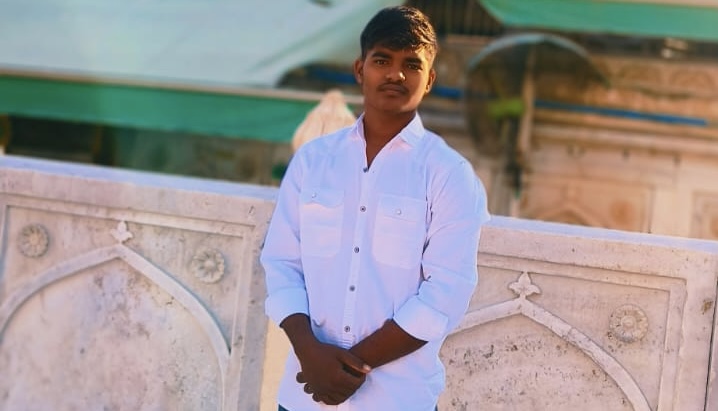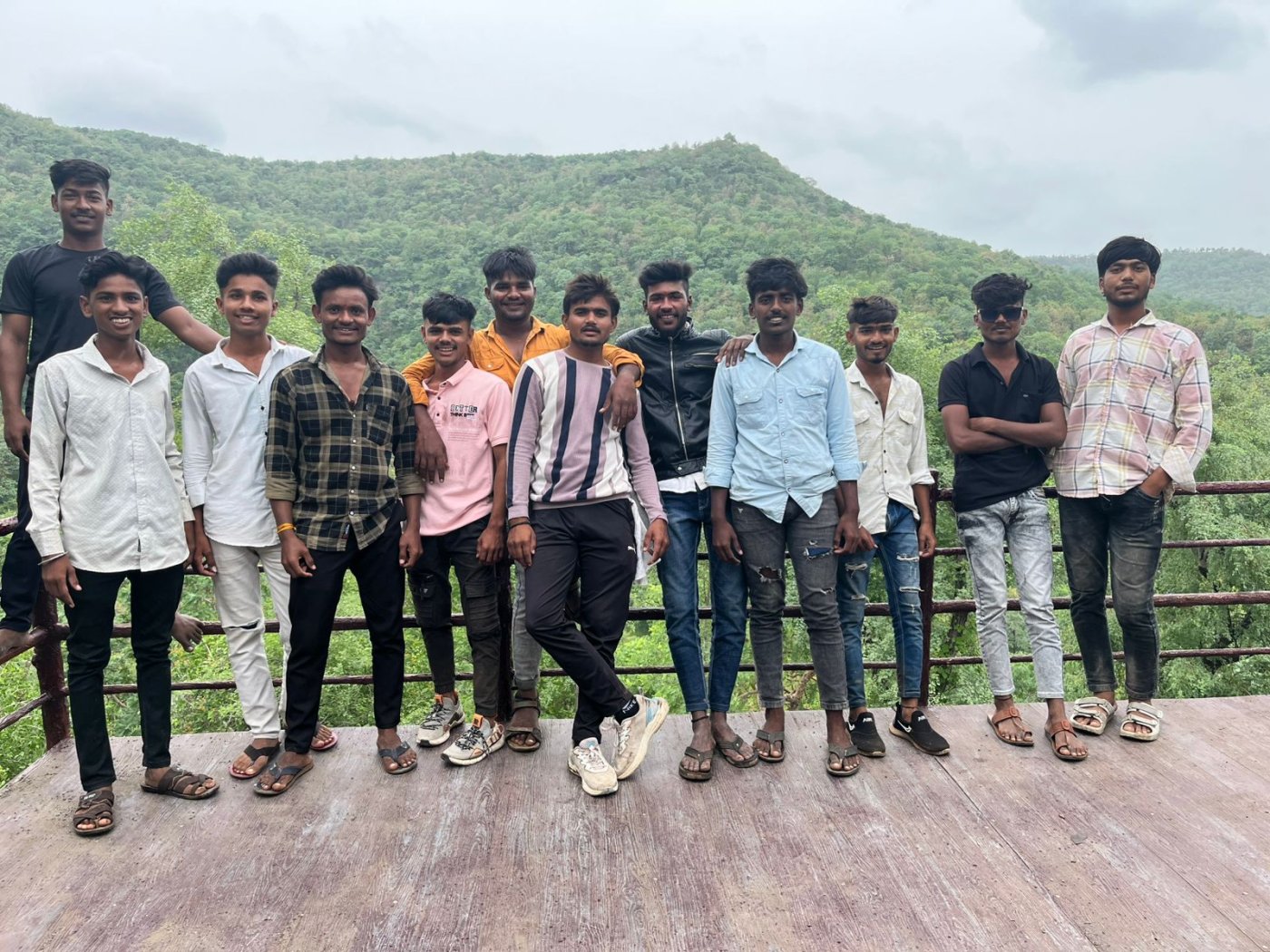Mumbai: On the map, Betawad Khurd in Maharashtra’s northern district of Jalgaon is a small trapezoid-shaped village. For 20-year-old Suleman Khan Pathan, it was his entire world.
When his father once needed urgent surgery, the village of about 3,000 raised the money. His best friends were all Hindus—unsurprising in a village with more than 600 Hindu households and just four Muslim ones.
At home, the family joked that Suleman thought he was Hindu.
In 2024, he became head of the local Ganesh mandal, leading the annual festivities: fundraising, choosing the idol, and overseeing every detail of the celebrations.
He refused offers to migrate, even turning down his brother-in-law’s job at a mobile shop, because he wanted to stay in the village he loved.
On 11 August 2025, that devotion cost him his life.
Suleman was lynched in a nearby town by a mob of Hindu men that included his childhood friends—men he once called his jaan, his life.
A Brutal Killing
News reports (here, here and here) say Suleman had been to a café in Jamner town, 20 km away, to meet a 17-year-old Hindu girl. Around 11 am, a mob barged in, dragged him out, and beat him with iron rods and wooden sticks.
The café is less than a minute from the local police station.
The mob bundled him into a van, stopping several times along the way to beat him again and again. CCTV footage collected by his family shows Suleman being pulled out and battered at multiple points on the 20-km journey back to Betawad Khurd.
By afternoon, the mob brought him to the village bus stand, barely 100 m from his home. His father Rahim rushed there after a call from a Hindu villager—and found his son nearly naked, writhing in pain.
“They kept repeating just one line: Mussalmaan hai, maar daalo isko (He is a Muslim, kill him),” Rahim told Article 14. “There were no other slogans.”
Suleman's nails had been pulled out, his ears were bleeding, and he was convulsing in pain, his family recalled.
Died In His Family's Arms
When Rahim, his wife, daughter and elderly father tried to intervene, they were beaten too. Members of the mob threatened to assault the women sexually. Some locals watched, the family said, but did nothing.
Minutes later, Suleman collapsed. He asked for water, sipped, and died in his family’s arms.
“Suleiman ko bahut tadpa tadpa ke maara (They killed him torturously),” said Suleman’s brother-in-law, Mehboob Khan.
Rahim’s police complaint named five men—Abhishek Rajput, Ranjit Matade, Aditya Devre, Sojwal Teli and Krishna Teli—and 10 to 12 others. The first information report (FIR), the first stage of a criminal case, mentions murder, rioting, kidnapping and assault.
Article 14 has seen a copy of the first information report (FIR).
'How Can Family Gather Evidence'
Khan alleged that while the FIR was filed promptly, the police refused to include the names of the mob members the family saw battering Suleman.
“When we named one person that Suleman’s mother and sister saw that day, the police said we needed to bring evidence that he was involved,” said Khan. “How can the family of the victims be expected to gather evidence about the accused?”
“The police should have, at least, investigated whether that person was there or not, instead of dismissing our statement,” said Khan.
Article 14 sought comment from Jalgaon superintendent of police Maheshwar Reddy over text messages. There was no response. We will update this story if he responds.
Suleman’s murder was the latest manifestation of the increasingly communal turn that Maharashtra has taken, said experts.
“In recent years, Hindutva groups have become very active in the region,” said Suhail Amir, district head of the Jamaat-e-Islami.
In 2023, Hindutva outfits spearheaded an agitation against a mosque in Jalgaon’s Erandol, calling it an “encroachment” on what they claimed was once a temple. Following the protests, the district collector barred Muslims from praying there.
Amir said several groups had been working in the district to counter such rhetoric and preserve harmony between Hindus and Muslims. “But a lynching like this undoes years of effort," he said. "Muslims across the district are terrified right now.”
The Communalisation Of Maharashtra
Once hailed for its cosmopolitan ethos, Maharashtra now registers some of the highest levels of communal offences in the country.
The state accounted for 210 out of 1,165 recorded hate-speech events in 2024—18% of the national total, placing it second only to Uttar Pradesh, according to a report released in February 2025 by India Hate Lab, a think tank based in the US.
Nationally, these incidents surged by 74.4% compared to the previous year, the report said.
This spike is not limited to speech alone. Maharashtra also led the nation in rioting cases in 2022, with 8,218, according to 2022 NCRB data, the latest available, topping the tally for the year. It also ranked second in overall crime the under Indian Penal Code (IPC), third in murders with 2,295 reported, and fourth in rape cases.
NCRB data on offences promoting hostility between groups—under IPC section 153A—reflects a similar pattern: Maharashtra recorded 178 such cases in 2022, trailing only Uttar Pradesh (217) and Rajasthan (191).
One reason hate speech has risen in Maharashtra is the impunity that those who deliver it are allowed.
In January, Article 14 reported how the police took no action against a member of the legislative assembly of the ruling Bharatiya Janata Party, Nitish Rane, despite months of Islamophobic speech and threats of violence.
Rane has called Muslims Pakistani pimps, green pigs and green snakes; has threatened to strip, beat them and has urged Hindus to boycott Muslims and demolish mosques. The police filed—on court orders—20 FIRs against him, 19 over two years. On 15 December 2024, Rane became a minister, his rhetoric reflected in the accusations made against Suleman.

'Love Jihad' & Manufactured Hate
The mob that murdered Suleman was allegedly enraged by his friendship with a Hindu girl. Hindutva groups often describe such friendships as love jihad, an unproven conspiracy theory that claims Muslim men seek to lure Hindu women into conversion.
“Is it a crime for boys and girls to be friends?” asked Suleman’s brother-in-law Khan.
In January, BJP minister Rane claimed in an interview to Article 14 that the lives of Hindu women were being “ruined” by “love jihad”. In November 2020, Prime Minister Narendra Modi’s government said that the term “love jihad” was not defined under the law and no such case was reported by any central agency.
Suleman had finished class 12 with 74% and dreamt of joining the police or Army, his family said. Until then, he worked as a daily-wager on farms, while helping his father cultivate their 3.5-acre plot.
“He wanted to make his father proud by showing that someone from such a small village could rise up there,” Khan said.
Despite hardships, Suleman refused to leave Betawad Khurd.
“I offered him an easier job at my mobile store, but he said he wanted to be in his village,” Khan said. “The thing is, he really liked his life here. There was no reason for him to go away.”
Friends Who Turned Killers
For Pathan’s family and friends, his life and his violent end are irreconcilable contrasts.
A 21-year-old childhood friend, a Hindu—who requested anonymity fearing legal trouble—described Pathan as someone who “took everyone along”.
“He never had disputes with anyone in the village,” the friend said. “He spoke to everyone with love. Even if someone was rude to him, he would ignore it rather than respond in kind.”
These qualities, the friend recalled, were evident when Pathan headed the village Ganpati mandal in Betawad Khurd.
Rubbishing allegations that Pathan was involved in ‘love jihad’, the friend cited his role in organising Ganpati celebrations and the fact that his family lived surrounded by Hindu households.
“Any other family might have felt uneasy in that situation, but this village never had Hindu-Muslim tensions,” he said.
Khan, Pathan’s brother-in-law, agreed. “I live in Dhamangaon village in Buldhana, which has a Muslim majority,” he said. “If there had been communal trouble here, I could have moved them there. But such an issue never arose.”
The Betrayal
What haunts Suleman’s family most is the betrayal of those they considered his friends—at least three of them were among the men Rahim named in his FIR.
Khan said that the family suspected these friends kept a watch on Suleman as he left home that morning, tipping off other members of the mob.
“They were part of his daily life. He trusted them more than anyone,” said Khan. “He used to call them his jaan, that’s how fond he was of them.
“Those same people did not hesitate to kill him.”
Many other Hindu friends have since visited, ashamed at what happened. Amir, from the Jamaat-e-Islami said villagers were shaken
“At first, many were too scared to meet the family because members of the mob had warned against helping the family,” said Amir. “But slowly, they came—even at his funeral, a large number of Hindus turned up.”
The family acknowledges this support but fears the hatred has seeped in deeply.
“The atmosphere here was always good,” Khan said. “But now we don’t know how outsiders will exploit this—or what might come next.”
(Kunal Purohit is an independent journalist and the author of the book H-Pop: The Secretive World of Hindutva Popstars.)

